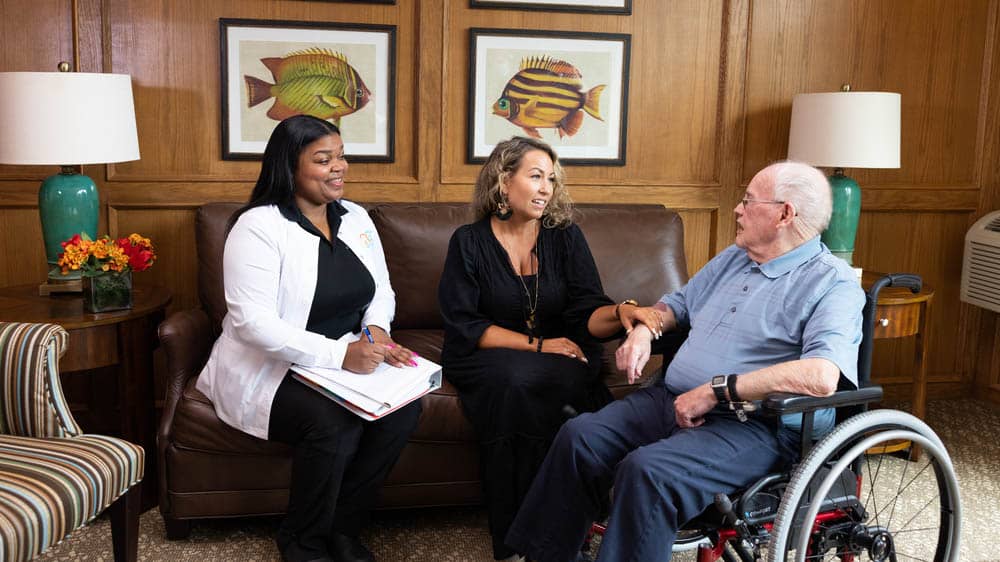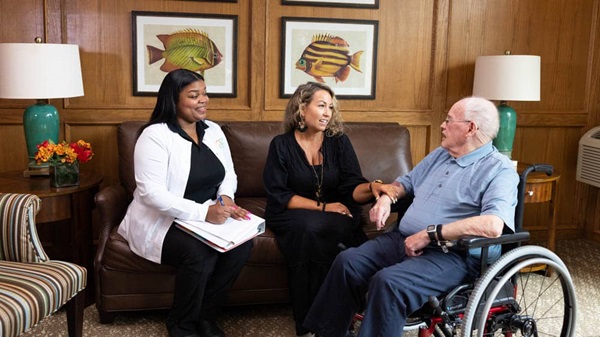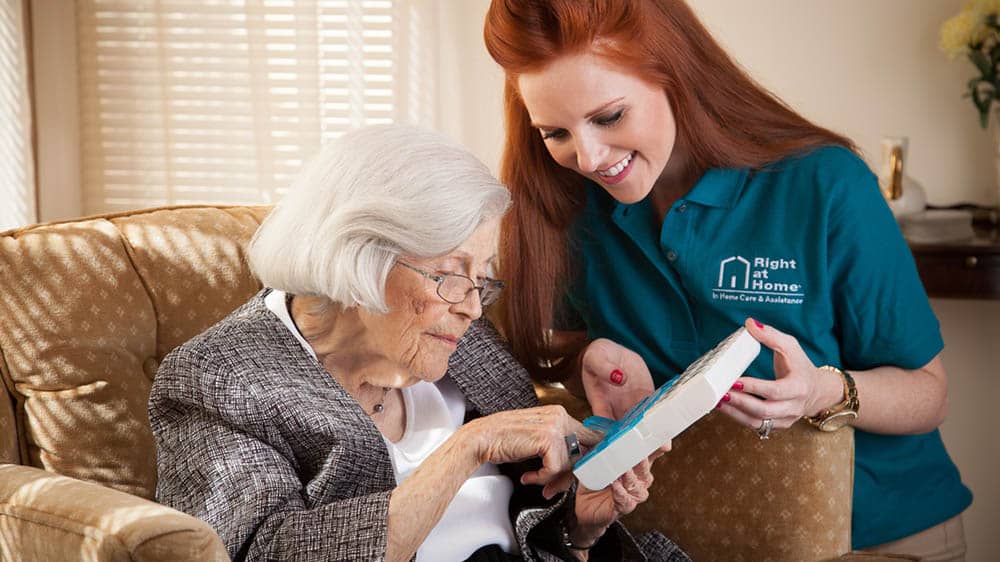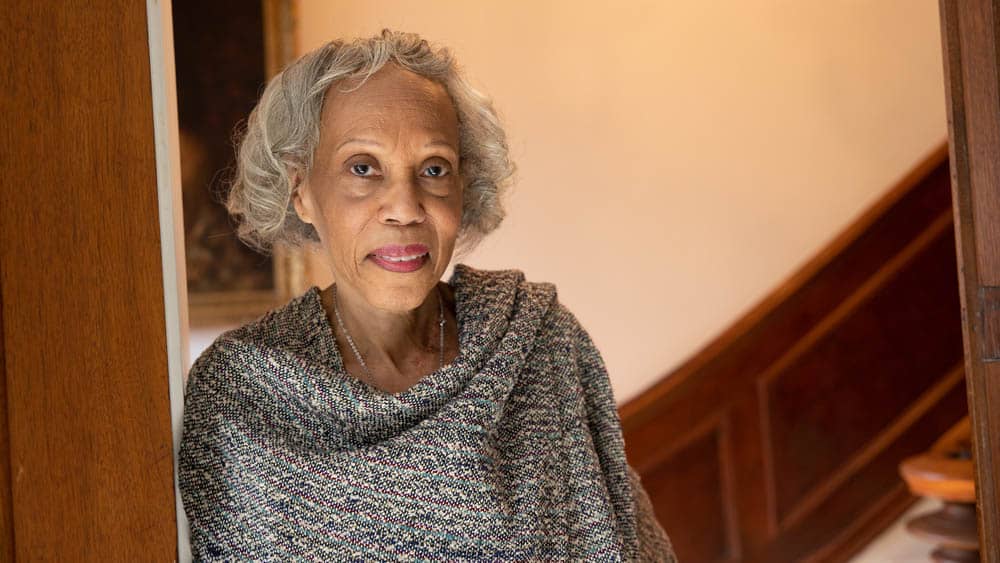

How Geriatric Social Workers Are Transforming Senior Care
Your parent or older loved one wants to continue living at home, but it’s become clear that they need help to do so. What kind of assistance would most benefit them? Are there any free or low-cost local support services, such as senior transportation, that can help? Who can assist with everything from coordinating caregiving services to helping your parent enroll in Medicare? How do you ensure those whom you enlist for help are qualified and will protect your older loved one?
As our loved ones age, ensuring they receive the care and support they need becomes a top priority. This is especially true for those who want to age in place, as most Americans say they do. Navigating the complexities of aging can be daunting, but with the assistance of geriatric social workers, the journey becomes more manageable and empowering.
What Is a Geriatric Social Worker?
Geriatric social workers are professionals trained to address the unique challenges older adults and their families face. Most are licensed social workers, but many are also nurses, certified dementia caregivers, occupational or physical therapists, or experts in other related specialties.
The specialized skills of geriatric social workers can make a big difference for seniors and their families—especially if the family lives in another city or time zone. Their deep understanding of the physical, emotional, and social aspects of aging allows them to provide comprehensive support tailored to each older adult’s needs. Here’s how their specialized skills can benefit your loved one.
- Holistic assessment: Geriatric social workers conduct a holistic assessment, meaning they look at the “whole person” to understand their well-being, living situation, family dynamics, support network, and more. They take into account not just medical needs but also social and emotional well-being.
- Care coordination: Managing various aspects of care can be overwhelming for seniors and their families. Geriatric social workers excel in coordinating services, including medical appointments, home care assistance, transportation, and community resources. They streamline communication among health care providers, family members, and other support systems. They are also available in emergencies to accompany their clients to the hospital. One geriatric social worker describes her role as being the “boots on the ground” for her clients and their families.
- Advocacy: Seniors may encounter challenges in accessing appropriate health care services, financial assistance, or legal support. Geriatric social workers serve as advocates, ensuring that their clients’ voices are heard and their rights are respected, including during emergency care. They know their way around hospitals and other health care bureaucracies.
- Counseling and support: Aging can bring about significant life transitions and emotional upheaval. Geriatric social workers offer counseling and emotional support to help seniors cope with issues such as grief, loss, depression, and anxiety. They provide a safe space for clients to express their feelings and explore coping strategies for navigating life’s changes.
- Education and empowerment: Geriatric social workers empower seniors and their families with knowledge and resources to make informed decisions about care services. They provide education on health conditions, treatment options, advance care planning, and long-term care arrangements, empowering clients to take control of their health and well-being.
How To Find a Geriatric Social Worker
Researching the backgrounds of geriatric social workers is essential to finding the right professional match for your needs. Here are some tips for conducting your research:
- Check their licensing and credentials. Not all geriatric care managers are licensed social workers, but for those who are, their credentials can provide assurance of their expertise and professionalism. Look for individuals who are members of reputable organizations such as the Aging Life Care Association, which requires members to adhere to high standards of practice and ethics.
- What is their experience and specialty? Explore the geriatric social worker’s professional background and experience to ensure their skills and expertise meet your specific needs. How long have they worked with older adults? Do they have specialized training in gerontology or aging services? Are they familiar with local resources and support networks?
- Check client testimonials and referrals. Get recommendations from friends, family members, health care professionals, and community organizations that have experience working with geriatric social workers. Reading client testimonials and reviews can provide valuable insights into the quality of care and level of satisfaction experienced by previous clients.
- Schedule an initial consultation. Explain your needs, goals, and expectations. Ask the geriatric social worker questions about their approach to care, communication style, fees, and availability. Pay attention to how they listen and respond to your concerns, as building a trusting and collaborative relationship is crucial for effective care management.
Geriatric Social Workers Are Helping Transform Senior Care
Geriatric social workers play a vital role in enhancing the quality of life for seniors and their families. This is a big change from past generations when seniors depended on family members or long-term living residences. Now, seniors can access personalized support, advocacy, and guidance while aging in place. By researching geriatric social workers’ backgrounds and finding the right professional match, you can ensure that your loved one receives the compassionate and expert help they deserve.
How Right at Home Can Help
Right at Home works alongside and receives home care referrals from many geriatric social workers across the U.S. We provide a wide range of services, from companionship and homemaking to personal care and memory care, helping families ensure the well-being of their older loved ones as they age in place. Use our office locator to speak to a Right at Home aging expert near you.
Interested in receiving ongoing tips, advice, and information related to the aging journey, delivered directly to your email inbox? Subscribe to our monthly Caring Right at Home e-newsletter today.






